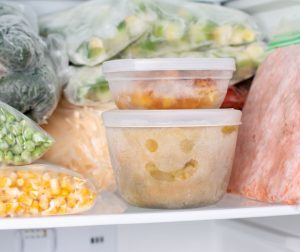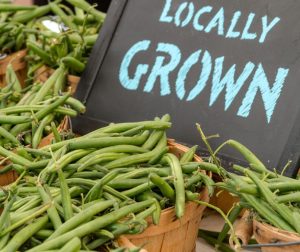From stashing our fridges with rainbows of fruit and veg to reducing sugar and embracing healthy fats and proteins, most of us know how to eat for good health.
Yet, buying mountains of fresh and colourful produce can take its toll on our bank account – particularly when we’re feeling the squeeze during the cost of living crisis.
If you’re working to a budget, or struggling to afford your weekly shop, then read on for a few of our favourite tips on eating well on a budget.
Plan Ahead
How often do you wander into a supermarket, only to get distracted by new products, endless offers, or tempting desserts? When it comes to sticking to a budget, planning ahead and creating a meal plan can help to stretch your money. When you have a list, you’ll be able to avoid impulse buys that you don’t really need or even want.
Bulk Cook
Once you’re planning your meals for the week, why not cook a few dishes that will last for multiple meals? Soups, stews, and curries can all stretch well for days on end – you can either enjoy these as leftovers the next day, or stash them in a freezer for frantic days. Bulk cooking also helps to save on energy costs, and will make you less likely to dial a takeaway restaurant when you’re too tired to cook! Some of our favourite meals for bulk cooking include our dhal recipe here.
Buy Multi-Taskers
Try to buy ingredients or foods that can be used in multiple recipes. For example, rather than buying an exotic-sounding spice that you’ll likely use just once, load your trolley with versatile spices that can be used in multiple meals. If you like eating chicken, you could also roast a whole chicken and then shred it to use across multiple dishes. Our oils also make great additions to your pantry as they can be used in a whole host of recipes, from baking and frying to sauces, dips and more.
Go Frozen
It’s easy to simply hit the fresh fruit and vegetable aisles, particularly if you want to eat more healthily. However, often-neglected frozen fruits and vegetables are incredibly budget-friendly and just as healthy. What’s more, they tend to be frozen during peak season, so they’ll taste delicious – even if you’re buying strawberries in December. Canned fruits, vegetables and legumes and pulses are also fantastic, purse-friendly options that will last far longer in your cupboard. No waste is necessary.
Consider Plant-Based
While the cost of meat is soaring, legumes and pulses are some of the healthiest foods around and remain budget-friendly. If you don’t want to go vegan or vegetarian, then you could simply try some meat-free meals, or mix plant proteins with half the amount of your usual meat. This works especially well in chillis, where you can swap some of the mince for green lentils or black beans, and in curries and stews, too.
Utilise Waste
We toss out far too much food. Not only is this incredibly damaging for the environment, it also affects our weekly budgets, too. Rather than tossing out your leftovers, consider what you might be able to make with them instead. Roasted vegetables, such as courgette, taste delicious whizzed into pestos, while fresh herbs can be stored as ice cubes ready for later use. We also like to whip up nutrient-dense, creamy smoothies with tired-looking fruit and veg, while over-ripe bananas freeze well for banana nice cream. Veggie pasta dishes are also a great way to use up vegetables that might otherwise get thrown out.
Shop in Season
While it can be tempting to enjoy mangoes in February or asparagus in November, it’s much cheaper to eat foods which are in season. Often, shops and supermarkets will do special offers on seasonal produce, while these foods will also be sold in abundance at local farmers’ markets, too. This is not only better for the environment, but it may also be better for your health – some believe that seasonal produce is richer in nutrients, vitamins and minerals.
Skip Processed Foods
While whole foods may seem expensive, you’d be surprised at how pricey some of your favourite processed products can be. Wherever you can, ditch those processed foods – which are often laden with artificial chemicals, sugars and inflammatory oils – and, instead, enjoy cheaper, healthier whole foods.
Grow Your Own
Going green-fingered comes with endless benefits! Not only will it help to calm the mind (spending time in nature is a proven way to lower levels of cortisol, AKA our stress hormone), but growing your own can save you money, too. You don’t need a huge garden either – you could consider renting an allotment, or you could grow your own herbs in your very own window garden at home.
Avoid Shopping Hungry
How often do you grab sugary, indulgent snacks when you hit the supermarket on an empty tummy? When we’re feeling ravenous and our blood sugars are low, we’re more likely to make impulsive decisions when it comes to food. To avoid this, make sure you shop when you’re feeling full – it will help both your bank and your health!
Bulk Buying
Look for deals on your favourite high-quality pantry ingredients and sign up for newsletters so you don’t miss any discount codes from your favourite food brands like Olivado! Sign up to our newsletter here!






